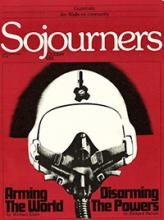An extensive campaign is under way in south Korea to depict the Chun Doo-hwan government as a reform government and to emphasize its discontinuity with the Park Chung-hee regime that it replaced. Actually all that has changed is that a highly controlled press and political system have co-opted the language of democracy without any of its substance. Psychological means of control have replaced some of the cruder physical means; a much more sophisticated structure of oppression is in place today. To understand the present Chun government in south Korea it is necessary to recall the bloody history of its birth.
1979 was a transitional year in which many of the controls of the old Yushin system began to crack under the strain of increasingly vocal opposition. The Park government, out-voted in the December, 1978 National Assembly election, doubled its efforts to smear the opposition as communist, especially the Christian opposition. Staff members of the Christian Academy were arrested and tried under the Anti-Communist Law. Reporters fired from the Dong-A, Korea's leading daily, were tried for publishing a newsletter on human rights. The Protestant Urban-Industrial Mission movement and the Catholic Young Christian Workers were blamed for a police riot against women workers in an incident at the New Democratic Party headquarters in August--the incident that started the flow of events leading to the riots in Pusan and Masan and the assassination of Park himself.
Shortly after former dictator Park's death, General Chun, then commander of military intelligence, led an intra-military move to seize power on December 12, 1979, during which 70 to 80 troops were killed.
Throughout the spring of 1980, while popular opinion rallied around revision of the constitution and the awakening of democratic politics, Chun's military group quietly consolidated its power. Chun took over the KCIA in March and moved his men into place in that organization.
Read the Full Article

